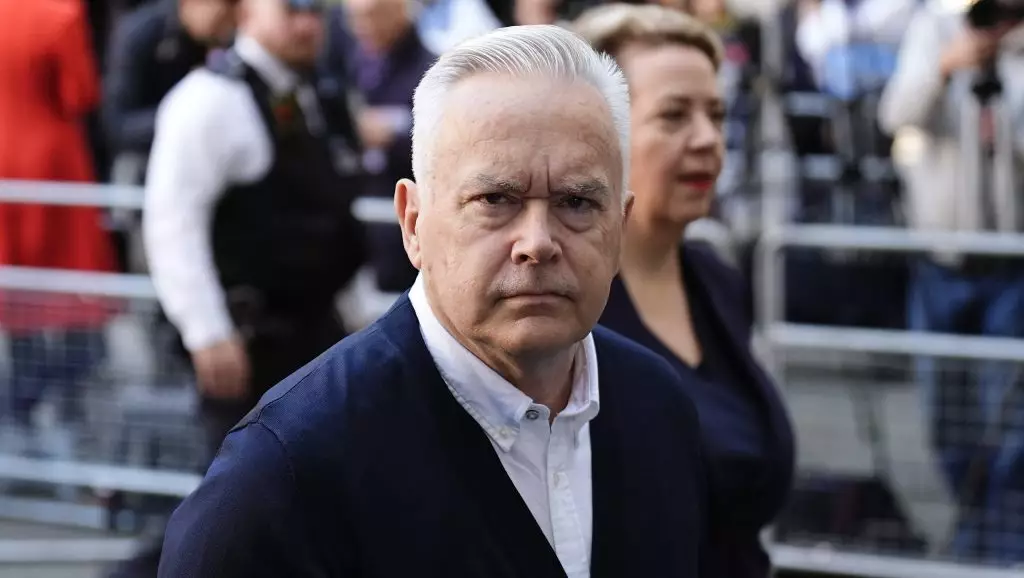The British Broadcasting Corporation (BBC), a longtime stalwart in broadcasting, finds itself at a significant crossroads following a series of public controversies involving key figures and troubling allegations of misconduct. A recent announcement from BBC Chair Samir Shah signals the impending release of a workplace culture review, commissioned in the wake of former newsreader Huw Edwards’s disturbing actions. This initiative represents not just an internal critique but a crucial opportunity to reshape the ethos of one of the nation’s oldest institutions. As details of this review unfold during an upcoming town hall meeting, the stakes are high; a dialogue has begun about realigning the BBC’s values with its public responsibilities.
A History of Oversight
The BBC has a complex history, often marred by flaws in its leadership and culture. In recent years, the organization has faced escalating scrutiny over various instances of misconduct, signaling an urgent need for introspection. Unlike previous reviews that have merely skimmed the surface, this deep dive conducted by management consultancy Change Associates aims to uncover systemic issues ingrained within the organization. Questions about the overall understanding of the BBC’s Values and Code of Conduct resonate louder than ever, particularly in light of scandals that have plagued the workplace environment. Instances of inappropriate behavior among high-profile talent, including revelations about figures like Russell Brand, have underscored a trend that cannot be ignored.
The Pivotal Role of Management
The review, spearheaded by Change Associates’ Grahame Russell, sets lofty expectations for practical recommendations that could foster a culture of accountability. Director General Tim Davie has heightened these expectations by advocating for a “zero tolerance” stance toward misconduct. However, genuine transformation hinges on the implementation of these guidelines, as culture is cultivated from the ground up. For the BBC to thrive moving forward, it’s critical that managers embody these values authentically. The responsibility lies not only with the executive level but also permeates through all layers of the organization, compelling each individual to uphold these ideals actively.
Empowering Whistleblowers
Among the aims of this exhaustive review is the reinforcement of a framework that empowers employees to voice their concerns without fear of retaliation. It is not enough for the BBC to make declarations about promoting an open dialogue; a shift in cultural perception is essential. Past reviews, like the one conducted after the Jimmy Savile scandal, prompted more complaints than resolutions; thus, it is vital that the current investigation translates into actionable strategies that prioritize employee safety and ethics over reputational preservation. By encouraging a climate where colleagues feel secure in expressing their grievances, the BBC could redefine its cultural landscape.
Public Trust: The Ultimate Currency
The BBC operates under the principle of public trust; it is funded by the license fee paid by viewers across the UK. This societal contract compels the organization to maintain the highest standards of integrity, and the scandals have undeniably tainted this trust. The impending findings from the Culture Review represent a critical moment for the BBC to re-establish its commitment to being a bastion of ethical conduct and a defender of journalistic integrity. A comprehensive understanding of the work environment, as revealed in the upcoming report, could serve as a fresh start for an organization that has, regrettably, become synonymous with misconduct and cover-ups.
Looking Forward: A Moment of Reckoning
As the BBC prepares to unveil the findings from this anticipated review, it is more than just a moment of reflection; it is a chance to usher in a renaissance of ethics and accountability. The cultural evolution within the BBC will require significant effort, transparent communication, and a commitment to radical change. Perhaps this moment can elevate the conversation about workplace culture within broader media industries, urging other organizations to reflect on their practices. If the BBC succeeds in this endeavor, it may reinstate its role as a leading light in journalism, rekindling the faith of the public and setting a new standard for workplaces nationwide. The world is watching, and the time for change is undeniably upon them.
